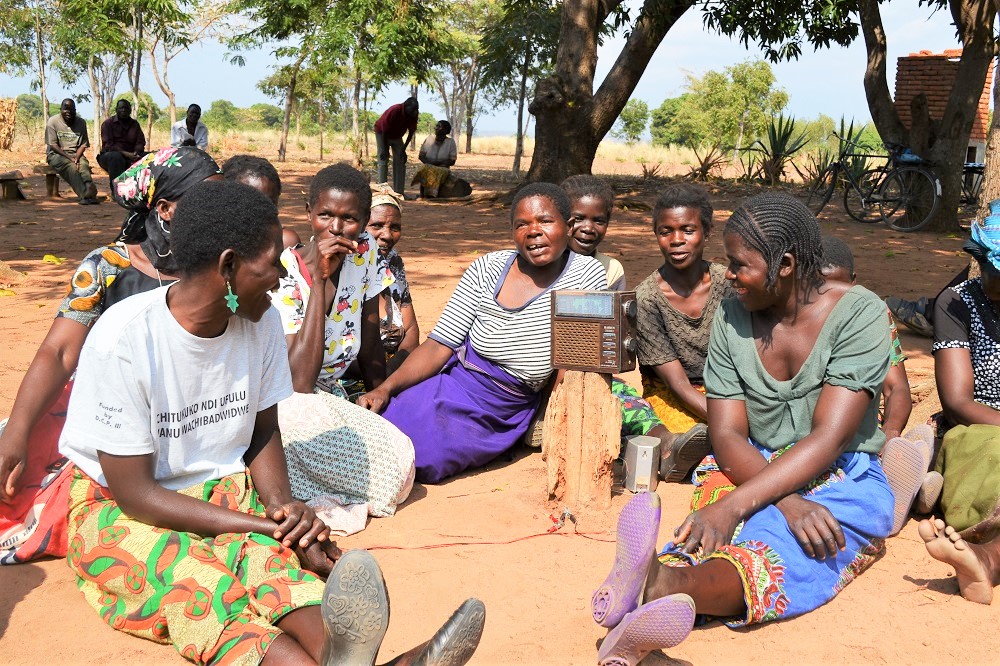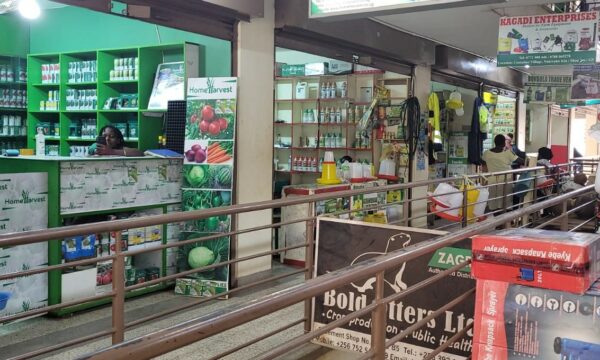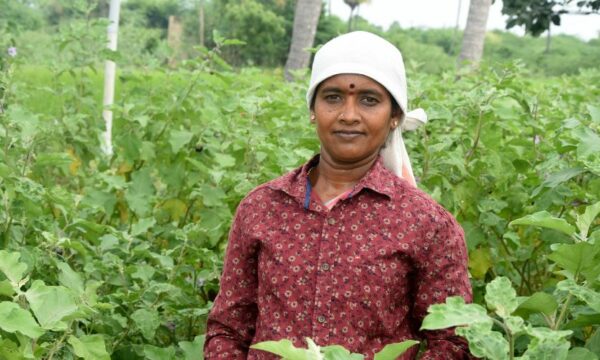
CABI is joining forces with Farm Radio International to roll out a behaviour change communication (BCC) campaign to try and help break down the barriers to gender equitable agricultural extension services in Ghana.
Previous research has already revealed that women farmers in developing countries, including Ghana, face challenges in accessing extension advisory services on how to grow healthier and more profitable crops free of pests and diseases.
Where extension services are provided, these tend to be geared towards the needs of male farmers. Alongside other limitations experienced by women farmers, this bias contributes to the gender gap in agricultural productivity in developing countries.
Because of the discrimination, women-managed farms are 20-30% less productive than farms managed by men. There pervades the perception that cash crop production is the preserve of male farmers and women, therefore, are help back from reaching their full potential in the industry.
Equitable access
Solomon Duah, CABI’s Communications Specialist in Ghana, said, “In response to some of these challenges that CABI, through the PlantwisePlus programme, seeks to enhance the knowledge and uptake of climate-smart plant health – and other agronomic information – in a way that ensure that both men and women farmers are able to equitably access and benefit from extension services.
“The BCC campaign is running in Bono and Bono East Regions of Ghana where women farmers themselves assume that extension activities are meant for men and so do not participate if their husbands are available.
“There are even some extension agents who have reported their belief that there is no need to target women members of households as only the (male) household head needs to be targeted.”
Mr Duah said the aims of the BCC campaign also include raising awareness about the important contribution women make to agricultural development and the need to recognize them as legitimate contributors to and beneficiaries of agricultural services.
Ultimately, he said, the BCC campaign will seek to redress the gender balance and inclusivity in rural advisory service delivery and improve women’s participation and access to extension services.
Already, the project has trained programme producers and presenters of four radio stations in Sunyani, Wenchi (Bono), Goaso and Mim (Ahafo) and programmes are now being broadcast to the target audiences.
A previous study conducted in Wenchi, Sunyani West, Asutifi North and Asunafo North showed that there was no difference in terms of crop or cultivation activities among men or women across the study communities.
Variations in crop cultivation and activities
In other words, crop or cultivation activities were the same for both men study participants and women study participants across the study districts. There were, however, some variations in crop cultivation and activities by gender, including the youth.
The study participants indicated they have the opportunity to interact with extension agents through home visits, farm visits, crop meetings and phone calls. Farmers who do not belong to farmer groups also do participate in community gatherings for sensitization purposes.
They attend meetings and training to discuss agricultural activities with extension agents though not regularly. There were, however, differences in terms of how often the farmers interacted with extension agents.
Communities visited in the Ahafo area had women agents who were stationed in the communities and therefore were much closer to the farmers than communities in the Bono region due to the absence of accommodation and personnel.
The men were reported to have the opportunity to interact more with extension agents than women because of the time and unpaid care and domestic work.
Difficult to participate
Furthermore, the majority of women in the study communities revealed that they sometimes find it difficult to fully participate in community/extension meetings due to the mixed-gender nature of the meetings. Women farmers also sometimes felt reluctant to participate in extension activities led by men extension providers.
A lack of confidence, public speaking skills and inability to read and write especially in numeracy were also identified by the study participants as key limitations to women becoming lead farmers or contact persons.
Bethel Terefe, CABI’s Gender Coordinator, said, “An assessment of the current state of gender-sensitive extension services in Ghana by CABI confirms that women farmers face many barriers to access extension services. A key barrier is social norms and attitudes, both within farmers’ communities and among extension staff.
“One way in which the role of women farmers can be understood and appreciated more, as well as bringing about real changes in their social standing and application in the industry, is to employ campaigns such as this which brings their significant contributions to the fore.”
Overcoming differences
If male–female differences in access and yields could be overcome, the number of undernourished and hungry people worldwide would fall by 100–150 million.
The work with Farm Radio in Ghana is just one example, as part of CABI’s Medium-Term Strategy 2023-2025, in which CABI is seeking to reduce inequality through better opportunities for rural women and youth.
One way in which it tries to do this is by developing digital, hybrid and face-to-face agricultural advisory services designed to ensure equitable access for women and other marginalized groups.
In 2021, a CABI-led study revealed the power of radio in extension communication as part of a campaign aimed at increasing the identification, monitoring and management of the fall armyworm (FAW) (Spodoptera frugiperda) pest amongst smallholder farmers in Zambia.
The research, published in the journal CABI Agricultural and Bioscience, showed that the radio campaign reached an estimated 1.4 million farmers and both male and female radio listeners were ‘significantly more aware of FAW and more likely to adopt the management practices than non-radio listeners.’
Additional information
Main image: CABI is joining forces with Farm Radio International to roll out a behaviour change communication (BCC) campaign to try and help break down the barriers to gender equitable agricultural extension services in Ghana (Credit: CABI).
Relevant stories
‘The power of radio in fight against fall armyworm highlighted in new CABI-led study.’‘
Changing farmer perceptions using radio campaigns in Malawi.’
Related News & Blogs
Bridging the gender digital divide in Ghana
The gender digital divide is impacting women’s access and use of digital agricultural tools. In recent years, there has been significant growth in digital technologies aimed at farmers and farmer advisors. These technologies offer opportunities for gro…
11 April 2024




